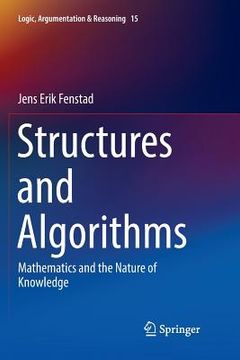Synopsis "Structures and Algorithms: Mathematics and the Nature of Knowledge"
This book explains exactly what human knowledge is. The key concepts in this book are structures and algorithms, i.e., what the readers "see" and how they make use of what they see. Thus in comparison with some other books on the philosophy (or methodology) of science, which employ a syntactic approach, the author's approach is model theoretic or structural. Properly understood, it extends the current art and science of mathematical modeling to all fields of knowledge. The link between structure and algorithms is mathematics. But viewing "mathematics" as such a link is not exactly what readers most likely learned in school; thus, the task of this book is to explain what "mathematics" should actually mean. Chapter 1, an introductory essay, presents a general analysis of structures, algorithms and how they are to be linked. Several examples from the natural and social sciences, and from the history of knowledge, are provided in Chapters 2-6. In turn, Chapters 7 and 8 extend the analysis to include language and the mind. Structures are what the readers see. And, as abstract cultural objects, they can almost always be seen in many different ways. But certain structures, such as natural numbers and the basic theory of grammar, seem to have an absolute character. Any theory of knowledge grounded in human culture must explain how this is possible. The author's analysis of this cultural invariance, combining insights from evolutionary theory and neuroscience, is presented in the book's closing chapter. The book will be of interest to researchers, students and those outside academia who seek a deeper understanding of knowledge in our present-day society.

